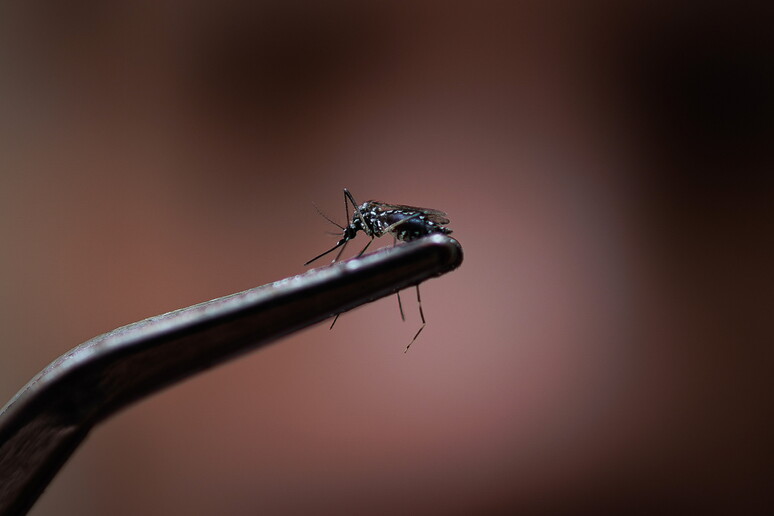by Valeria Pace
Due to climate change the risk of
tropical disease epidemics is rising in Western countries. The
risk is higher in Italy, Slovenia and Albania, countries with
the most abundant tiger mosquito populations, which have been
endemic in these areas since the 1990s. This is one of the
aspects highlighted by the section on Health of the European
Climate Risk Assessment (Eucra), the first report compiled by a
European Union agency on the risks posed by climate change,
published on Monday by the European Environment Agency (EEA).
As explained to ANSA by Cyril Caminade, a researcher at the
Earth Sciences section of the International Center for
Theoretical Physics "Abdus Salam" in Trieste (Ictp), one of the
authors of the report, who dealt with the rising risks posed by
infectious diseases once confined exclusively to tropical areas,
"Italy, Slovenia and Albania are home to the most abundant tiger
mosquito population, endemic in these areas since the 1990s."
The spread of dengue epidemics has already become a real
public health concern in Central and South American countries
such as Peru, Argentina, Guatemala and Brazil, which have
decreed a state of alert or emergency between February and March
2024 (in Italy there have already been 48 cases of dengue this
year). Because of climate change, Europe will need to be on high
alert for such epidemics.
Studies by Caminade and his collaborators show that
temperatures in southern Europe are already high enough to
enable tiger mosquitoes to transmit diseases such as dengue and
chikungunya. "In Italy, Slovenia and Albania, tiger mosquitoes
will not go away," Caminade pointed out, "Their seasonal
activity is lengthening due to climate change and the population
itself is growing. These factors, combined with the fact that
there are many people traveling to tropical areas, leads to an
increase in the spread of dengue and chikungunya," he explained.
Although "the highest risk to human health posed by climate
change" is actually "extreme heat during heat waves," "we need
to be on high alert on tropical infectious diseases," given the
rapid and "worrisome" increase in the incidence of these
diseases: "In the last 10 years we have gone from only 10 cases
a year to hundreds, and now we are also counting autochthonous
cases," Caminade specified. According to the Ministry of Health,
there were 362 cases of dengue in Italy in 2023, 84 of which
were autochthonous.
"The most important action to mitigate risks of dengue fever
- a disease which in 80 percent of cases is asymptomatic but can
be fatal in case of reinfection with another variant - is to
maintain public health surveillance and above all that the
population has a high level of awareness of risks and good
practices. Also, we need to continue with mosquito population
controls" Caminade concluded.
ALL RIGHTS RESERVED © Copyright ANSA





